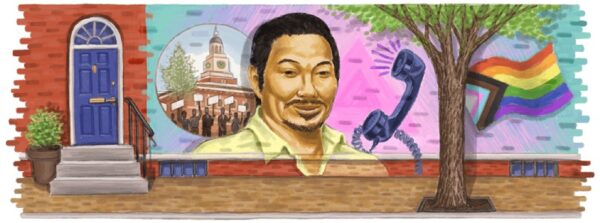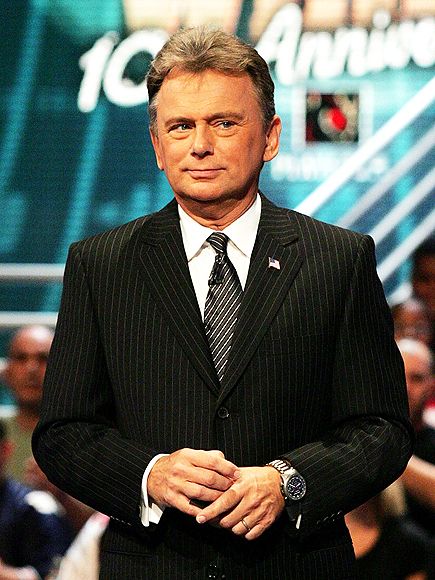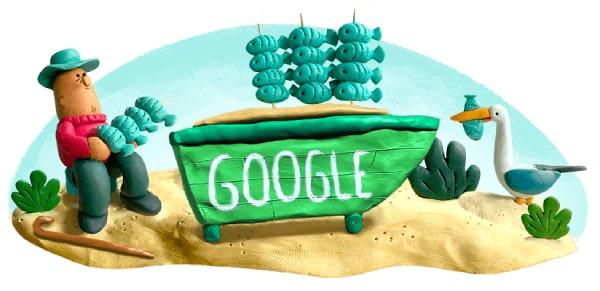
Fascinating Insights about Kiyoshi Kuromiya: A Japanese American Civil Rights Activist
Google Honors Kiyoshi Kuromiya: A Trailblazer in Activism
On June 4, 2022, Google pays tribute to Kiyoshi Kuromiya (キヨシ・クロミヤ), commemorating his remarkable life and enduring commitment to various social movements. Through an animated Google Doodle, Kuromiya’s impactful contributions to civil rights, anti-war efforts, gay liberation, HIV/AIDS education, and more are celebrated. Notably, in 2019, he was rightfully honored with induction into the National LGBTQ Wall of Honor at the Stonewall National Monument.
41 Interesting Facts about Kiyoshi Kuromiya (キヨシ・クロミヤ)
- Kiyoshi Kuromiya was born on May 9, 1943, in Wyoming at the Heart Mountain Concentration Camp, where his family had been relocated from Monrovia, California, where Kuromiya grew up.
- Kuromiya became a helper to Martin Luther King Jr. and a prominent opponent of the Vietnam War during the 1960s.
- After the war ended, Kuromiya’s family moved to California. As a gay Asian-American man attending predominantly Caucasian schools, he faced challenges related to his identity and struggled to find resources on gay culture.
- Kuromiya was one of the founders of the Gay Liberation Front Philadelphia and also established the Critical Path Project, its newsletter, and served as the editor of ACT UP’s Standard of Care.
- He grew up attending mostly Caucasian schools in the Los Angeles suburbs as a third-generation Japanese American.
- Kuromiya came out as gay to his parents when he was approximately 8 or 9 years old while living in California.
- His extensive involvement in human rights activities during the mid-1960s was largely influenced by his sexual orientation and the perceived lack of openness at the University of Pennsylvania.
- Kuromiya’s first antiwar protest occurred in 1962 during the Grinnell Support Against the Resumption of Nuclear Testing demonstration.
- At the University of Pennsylvania, Kuromiya organized the largest antiwar demonstration in the university’s history, with 2,000 participants.
- In his first year at Penn in 1962, Kuromiya participated in the Congress of Racial Equality (CORE) Maryland diner sit-ins.
- After meeting with Dr. Martin Luther King Jr. following the March on Washington in 1963, Kuromiya continued to work closely with the reverend throughout the civil rights movement.
- Kuromiya was one of the few Asian Americans who participated in the Selma to Montgomery marches in 1965.
- Kuromiya and other activists took over Independence Hall in Philadelphia, Pennsylvania, calling it the Freedom Hotel in support of individuals injured at Pettus Bridge during the civil rights march from Selma to Montgomery.
- Following Dr. King’s death in 1968, Kuromiya helped take care of King’s children in Atlanta during the week of the funeral.
- In addition to organizing the iconic antiwar demonstration at the Penn library, Kuromiya was highly involved in the antiwar movement throughout his early activist career.
- In October 1967, Kuromiya joined a massive demonstration organized by Abbie Hoffman that aimed to encircle the Pentagon and suspend its operations.
- In addition to his civil rights and antiwar activism, Kuromiya played a significant role in the gay liberation movement.
- Kuromiya officially came out as gay on July 4, 1965, during the first Annual Reminder protest held at Independence Hall.
- He co-founded the Gay Liberation Front (GLF) in 1969 following the Stonewall riots, along with Basil O’Brien, whom he met at a Homophile Action League meeting in Philadelphia.
- Kuromiya participated with the Gay Pioneers in the first organized gay and lesbian civil rights demonstrations held at Independence Hall and the Liberty Bell every Fourth of July from 1965 to 1969.
- Under Kuromiya’s leadership, the GLF fostered solidarity with groups such as the Black Panther Party and the Young Lords.
- Kuromiya represented the GLF as an openly gay delegate at the 1970 Black Panther Party Convention at Temple University, gaining support for the gay liberation movement.
- In 1970, Kuromiya attended the national gay liberation conference called Rebirth of Dionysian Spirit in Austin, Texas, which had a significant impact on his understanding of the movement.
- In 1972, Kuromiya established Gay Coffee Hour, the first gay organization on the University of Pennsylvania campus, providing a safe space for LGBTQ+ individuals of all ages.
- In the late 1970s and early 1980s, Kuromiya collaborated with architect R. Buckminster Fuller, assisting him with completing several books.
- In 1983, Kuromiya visited the Heart Mountain Relocation Camp, where he was born, with his mother, which had a profound impact on him as an activist.
- Kuromiya survived a battle with lung cancer in the 1970s and became close friends with Buckminster Fuller until Fuller’s death in 1983.
- Kuromiya began working extensively on the AIDS movement in the mid-1980s, following the onset of the AIDS epidemic in America.
- As a pioneering AIDS activist, Kuromiya was heavily involved with ACT UP, founding the Philadelphia chapter.
- After being diagnosed with AIDS in 1989, Kuromiya’s advocacy work became even more passionate.
- Kuromiya’s motto was “Information is power,” and he educated himself on AIDS-related issues, participating in National Institutes of Health therapy panels.
- He established the ACT UP Standards of Care, the first guidelines for people with HIV created by people living with HIV/AIDS.
- Kuromiya also founded the Critical Path newsletter, which he distributed to thousands of people worldwide, including incarcerated individuals who lacked access to AIDS information.
- He expanded the Critical Path newsletter into one of the first websites on the internet, providing up-to-date HIV/AIDS information.
- Kuromiya operated a 24-hour hotline through the Critical Path AIDS Project, offering assistance and providing free internet access to many people with HIV in Philadelphia.
- Kuromiya was actively involved in impact litigation cases in the late 1990s.
- He collaborated on several books with R. Buckminster Fuller, including the influential “Critical Path” published in 1981. Kuromiya was also a nationally ranked Scrabble player.
- Kuromiya’s interest in and dedication to digital democracy were influenced, in part, by Fuller’s philosophy.
- Kuromiya died in 2000 at the age of 57 due to complications from cancer, initially reported as complications from AIDS.
- He has been recognized for his contributions, including being enlisted to the National LGBTQ Wall of Honor at Stonewall and being named a San Francisco Rainbow Honor Walk Honoree in 2018.
- On June 4, 2022, Google featured a Doodle on its homepage to celebrate Kiyoshi Kuromiya’s contributions to activism and social justice.



